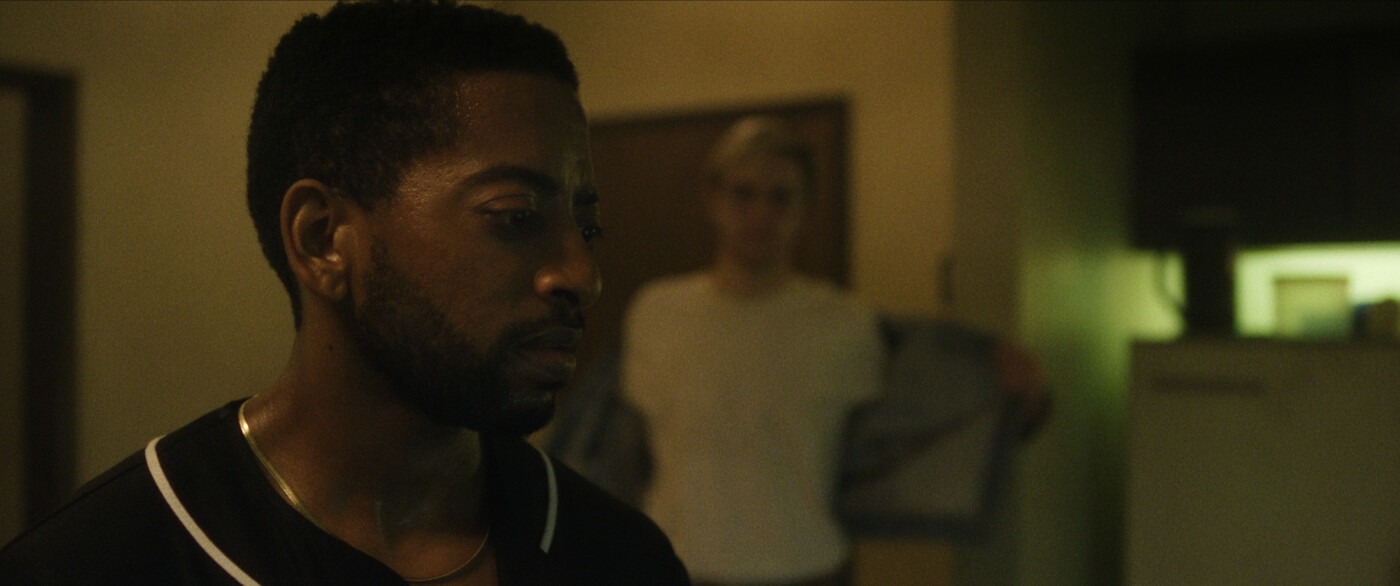Monster: The Jeffrey Dahmer Story
Jeffrey Dahmer may be one of the most infamous serial killers of all time. It doesn’t take a deep dive
into true crime to hear his name. Yet, the new Netflix series, Monster: The Jeffrey Dahmer Story has
been immensely successful, with ![]() just under 200 million hours watched in its first week. It feels past
just under 200 million hours watched in its first week. It feels past
the point of morbid curiosity, we know how it will start and we know how it will end yet we don’t
choose to look away. If this miniseries has shown anything though, it is that it is finally time to move
Jeffrey Dahmer out of the mainstream.
Created by Ryan Murphy and Ian Brennan, Monster was destined for success, both well-known
names in the industry who have such an extensive catalogue of work, it was clear this show wouldn’t
struggle to find an audience. Particularly, partnering the casting of Evan Peters in the main role with
the success of Murphy’s American Horror Story, viewers were bound to give this show a chance, and
they did in their millions.
the victims feel like pawns in an overarching narrative
I was surprisingly unfamiliar with the details of the Dahmer case, it was one of those things I’d always been aware of but had not consumed much media about, despite the countless documentaries and
adaptations. Therefore, I was pretty surprised to see our opening victim escape from Dahmer’s
Milwaukee address, and even more surprised to see the police arrest Dahmer and take him for
questioning. However, to those familiar with the case, the name Tracy Edwards was the giveaway.
Something feels uneasy about the shock value in a story rooted in truth, framing this story in a way that
increases dramatic effect feels somewhat inhumane. I ended the first episode and there was a sense
of a cliffhanger, wondering where the story would go despite the fact these events had already
happened years ago. To the families of those lost, there is no suspense, no shock, they know what is
coming – so why should viewers relive these events in such a disjointed fashion? The facts feel
overshadowed by the drama, and the victims feel like pawns in an overarching narrative.
attempt to rationalise Dahmer’s behaviour through his upbringing is a message that we shouldn’t be sending
Keeping focus on Dahmer, the show then cuts back to a young Jeffrey and presents to the viewer the
childhood he had. We see struggles with a broken home and Dahmer’s struggles with social
interaction. It is evident that he is an outcast and doesn’t quite fit in, but this is positioned to evoke
feelings of empathy, are we supposed to feel sorry for this young boy who just wants to dissect frogs
with his classmates when we know his life trajectory? I can’t tell you the answer to that question and
that is where the major issues of the show start to emerge. It is extremely dangerous to try and add
reason to the inexplicable, to attempt to rationalise Dahmer’s behaviour through his upbringing is a
message that we shouldn’t be sending. However, you have to acknowledge that all good TV relies on
caring about your main characters. All memorable moments come from this relationship between
the audience and the characters, and the most emotional deaths are the characters you have come
to hold so dearly. Monster has to do this, it has to contextualise and humanise its main character, so
maybe the issue isn’t in the execution but in fact in the conception. If your show has to explain the
motives of a killer in a manner that forms a connection between them and the viewer, then you have
to ask if the show should be made at all; and this is exactly how I feel about Monster: The Jeffrey
Dahmer Story.
The show begins to fetishise the cases
It is impossible to discuss Monster without addressing those involved in the original case, which then
presents further issues with the show. The seeming conveyor belt of Jeffrey Dahmer adaptations has
been a source of trauma for those involved, with particular emphasis falling on this Netflix
adaptation. The ![]() backlash focuses on the visceral nature of the show’s portrayal of the serial killer, the
backlash focuses on the visceral nature of the show’s portrayal of the serial killer, the
openness of the programme refusing to shy away from any of the gory details. The show begins to
fetishise the cases, with the attention being on the spectacle of the crime as opposed to treating the
victims with care. It is difficult enough to watch this show as a bystander, but with the overwhelming
need for shock value that is so prevalent within the show, I can’t begin to imagine how even the
mere existence of the show feels for those with a personal attachment to the case.
It felt wrong that such intimate details were laid out for all to see
The main feeling I got whilst watching Monster was discomfort, the sense that I was invading on
someone’s privacy. It felt wrong that such intimate details were laid out for all to see. Yet, I couldn’t
look away, which is reflected in the high viewership. People will consume shows about taboo topics
due to morbid curiosity but perhaps we need to do more to stop them from being made in the first place. I hope this is the last drop of airtime given to the Jeffrey Dahmer case, I hope this is the last time the
families of those involved have to reexperience the trauma that man has caused them, but I am not
optimistic this wish will come to fruition, especially with this recent adaptation being camped in the
Netflix top ten list and not showing any sign of moving.


Comments